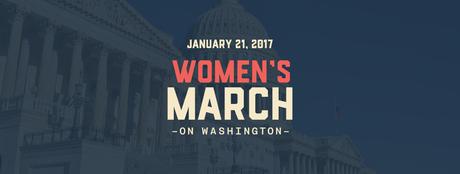
Are you going to March?
I remember the first time I was called a fag.
It was on a crisp fall day. I was walking to class. A man passed by me. It was casual, almost off-hand, like a bigoted stutter. It wasn’t the first time I had heard the word, but it was the first time it felt pointed, chiseled into the heart of my being. It was two days after the 2016 election.
Before that day, I had never felt that sense of otherness – the feeling that I was somehow alien to my homeland. Because though I am a queer woman of color, I had never before felt that my identities could fuel such casual enmity.
Maybe that was naïve of me, but we do live in a time where millions of Americans can imagine former Treasury Secretary Alexander Hamilton as a Latino rapper. Somehow, the idea that someone in my very hometown could still see me as a lesser being was shocking. I still believed in the “current year” fallacy: the belief that the future will necessarily improve from the past. I thought that my vision of America – a nation where diversity is championed, a nation that’s inclusive of all colors and creeds – was universal.
I blame my family for my idealism. My great-grandfather was an undocumented immigrant who entered the United States at the age of 12 in the early 1900s. He loved America above all. He loved the nation that passed legislation rejecting him on the basis of his skin tone and his nation of origin.
My parents grew up in America’s heartland, the industrial Midwest. My grandparents held the kind of blue-collar jobs that the white working class now wistfully remembers. My mother spent her childhood summers detasseling corn in the fields around her house. We have cow-shaped butter molds hanging next to our dumpling presses and bamboo steamers.
After every Thanksgiving (a meal of kung-pao turkey and sweet potato buns) my entire family always heads outside to play a game of touch football on the front lawn, like a color-inversed image of the Kennedys. And while we fumbled every other play and our passes were incomplete, I thought that we had won simply by being able to play the game. But my vision of a multicultural, diverse society seems to be on a losing streak.
While the plans for a border wall may be on hold in Congress, bricks have already been cemented in the mind of the American populace. The wall gets ten feet taller whenever people view themselves as separate, superior beings – when they deny the fundamental humanity they share with all other denizens of the world. The wall has partitioned the American soul. And on that bright fall day when that man stopped me in the street, the wall divided my own community, my own life.
I had never felt more vulnerable than I did at that moment two days after the election. But then I realized that the wall is only propped up because of the complacency of the American people – the people like me who believed that our work was done.
When I heard of the Women’s March on Washington, I knew I had found a movement that truly represented what America is to me, and I leapt at the chance to become a Youth Ambassador for the march. On January 21, 2017, marchers of all races, religions, gender identities, beliefs, and backgrounds will converge on Washington to stand for equality for all and justice under the law.
As individuals, our identities are not monolithic. As a nation, we are multitudes. To erase the composite nature of American society would be to extirpate the heart of our values. The Women’s March on Washington extends beyond the boundaries of traditional feminism to encompass a broader view of social justice.
The Women’s March on Washington extends beyond the boundaries of traditional feminism to encompass a broader view of social justice. We march to fight for a living wage, since the majority of minimum wage workers are women, and to stand up to hiring discrimination that disproportionately affects mothers, women of color, women with disabilities, and queer/ trans*/ gender non-conforming women.
We march to preserve the air we breathe, the food we eat, and the water we drink from exploitation for corporate greed, for now and forever.
We march to guarantee that everyone can live lives free of gendered and racialized violence, and especially free of state-sponsored brutality, because #BlackLivesMatter.
We march to provide comprehensive healthcare as a right to all people, regardless of ability to pay, and to support reproductive freedom and the right of all people to maintain personal autonomy over their bodies.
We march to reject mass deportations and violations of due process that normalize xenophobia, and to empower all aspiring Americans with a path to legal citizenship, especially those fleeing violence in other nations.
Gender justice is racial justice is economic justice is climate justice is queer justice is immigrant justice. These issues cannot be separated – I live at the intersection of these struggles. Justice must be for all, or it will be meaningless.
When I met with the leaders of the Women’s March and the other Youth Ambassadors for the march for the first time, I felt powerful. On January 21, 200,000 people from all over the world will join us in asserting their power as human beings.
We march not to mourn the past, but to look to a bold future of resistance and action. The physical march of the Women’s March is only the beginning. The march lays the ironclad foundations for bulwarks against oppression; the march constructs bridges between our communities to unite us in solidarity with one another.
Because while one girl might not topple the walls that divide us, maybe 200,000 will.

